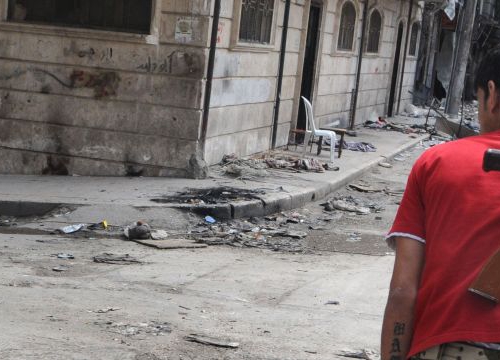Experts Discuss Legal and Security Challenges Related to the Detention of ISIS Members in North-East Syria and their Judgment under International and National Law


ICRC
28 May 2019
At an expert meeting co-organized by the Geneva Academy and the Swiss NGO Fight for Humanity experts discussed the detention and judgment of ISIS members, including foreign fighters and their families, in North-East Syria.
A Timely Discussion
In North East Syria, the Self-Administration established in 2014 has increasingly extended its area of administration according to the military advancement of the Syrian Democratic Forces (SDF) and controls, today, more than 30 percent of the Syrian territory. The SDF is currently detaining over 2,000 ISIS members from approximately 46 different nationalities, in addition to their families, in detention centres and camps in various locations in North-East Syria.
Academics and experts from various concerned countries considered the legal issues arising from the detention of ISIS members and their families, in particular, non-Syrian nationals, by the SDF and the North-East Syria Self-Administration, including their transfer, release, continued detention or trial.
‘International security and countering violent extremism experts also analysed the situation from a security point of view to minimize the risk for future security threats’ underlines Dr Annyssa Bellal, Senior Research Fellow and Strategic Adviser on International Humanitarian Law (IHL) at the Geneva Academy.
‘As different options are on the table regarding the prosecution of ISIS members currently detained in Syria, this expert discussion allowed to outline all the legal issues, national and international, that arise in this context’ underlines Professor Marco Sassòli, Director of the Geneva Academy.
Fight For Humanity published a report shortly after the meeting, and issued 10 corresponding recommendations.








